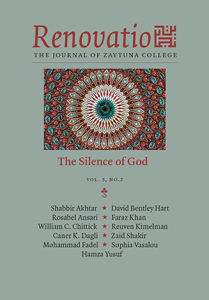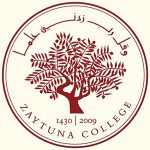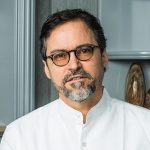Renovatio Journal 6 (Vol.3, No.2 Fall 2019): The Silence of God

Editor-in-Chief: Hamza Yusuf
Publisher: Zaytuna College
Year of Publication: 2019
Print Length: 121 pages
Genre: Islamic Studies / Theology, Ethics and Philosophy; Hadith, Sunnah & Sirah, History, Science, Qur’anic Studies; Non-Fiction / Religious Studies
Topic: Allah ﷻ, Prophet Muhammad ﷺ, Muslim, Islam, Qur’an, Ethics & Morality, Islamophobia, Language & Literature, Language & Literature, Metaphysics, Reality, Pluralism, Religious Authority, Modernity, Modernism, Modern; Postmodernity, Postmodernism, Postmodern; Religion, Religious Thoughts & Philosophy
Renovatio (renovatio.zaytuna.edu) is a Muslim journal about the ideas that have shaped our past and present world. We ask scholars, theologians, and writers to examine timeless questions and today’s moral challenges by drawing from the enduring texts of revelatory faith traditions and current thinking from philosophy, theology, and ethics to history, politics, the social sciences, and beyond.
Vol.3 No.2: The Silence of God
The Fall 2019 issue of Renovatio (“The Silence of God”) reflects upon how we continue to “hear” God, even after the close of revelation.
Table of Contents
Contributors
1. Counting the Minutes – Sophia Vasalou
Every single thing we do, every moment of waking awareness, every instant of our lives might carry value, be significant, and be ordered to some meaningful end.
2. The Sound of Silence – William C. Chittick
God’s speech is real, true, and authoritative; the speech of anything else, in and of itself, is unreal, false, and unreliable.
3. Can An Islamic Natural Theology Explain God’s Silence Today? – Shabbir Akhtar
In our age of rage and reason, we must examine the implications of the God of Abraham remaining silent, even in the face of widespread rejection.
4. Do We Mistake Our Passion for Truth with Its Possession? – Reuven Kimelman
God has given the Abrahamic family a window of opportunity to advance beyond sibling rivalry in the direction of fraternal cooperation.
5. Pia Fraus: Our Words and God’s Truth – David Bentley Hart
Is it possible that there are times when our words more faithfully reflect God’s truth because they do not conform or correspond to what happens to be the case?
6. Breaking the Cycle of Oppression – Hamza Yusuf
The tyrant in the palace and the bully on the street corner are easy to see, but spotting the tyrant within our souls is far more challenging.
7. Muslims Are Not A Race – Caner K. Dagli
Many intellectuals believe Islamophobia is a form of racism, but the ultimate presuppositions embedded in this view are antithetical not only to Islam but to religion as such.
8. The Oneness of Being – Rosabel Ansari
By affirming multiple levels to being, Islamic scholars rejected the flattening of being and the notion that a thing either is or is not.
9. After Revelation, Where Does Reason Lead? – Mohammad Fadel
With the end of revelation, Muslim scholars established a framework that allowed us to continue to “hear” God’s word, without the pitfalls of pure fideism on one hand and free interpretation on the other.
10. Things in Their Proper Places – Zaid Shakir
In Western philosophy, the conversation about justice has been long and winding. How has this conversation proceeded among Muslims?
11. “Everything Other Than God is Unreal” – Faraz Khan
A sound ontological argument would show that even without human experience of the world, pure reason itself necessarily arrives at the existence of God.

Zaytuna College was founded in Berkeley, California, with a mission to educate and prepare morally committed professional, intellectual, and spiritual leaders who are grounded in the Islamic scholarly tradition and conversant with the cultural currents and critical ideas shaping modern society, through a traditional liberal arts education.
Source: https://zaytuna.edu/about
More from Zaytuna College in this library, click here.

Hamza Yusuf is president of Zaytuna College in Berkeley, California, the first accredited Muslim liberal arts college in the United States. A leading proponent of classical learning, the traditional liberal arts, and great books education in both the Western and Muslim traditions, he has translated, authored, and coauthored numerous publications, including scholarly books and articles as well as papers on major current areas of ethical concern. He holds traditional advanced degrees (ijazaat) in Islamic law and theology, as well as a BA in Religious Studies (San Jose State University) and a PhD from the Graduate Theological Union in Berkeley, California.
Source: https://sandala.org/pages/about-us
More from Hamza Yusuf in this library, click here.
